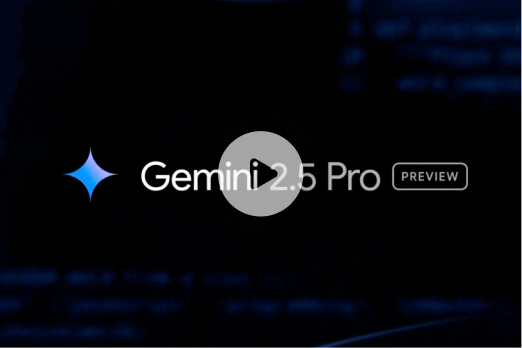Dear Readers,
It is well known that the next big step is robotics. AI is conquering our physical world. Amazon is leading the way here and wants to start using robots very soon to deliver goods to our front doors. We will soon find out whether this works.
In Today’s Issue:
Amazon’s humanoid robots are learning to deliver your next package
iPrompt blends Veo 3, ChatGPT, and Suno AI
Deekseek R1 stuns with its game-playing skills
Gemini 2.5 Pro sharpens its edge in coding, reasoning, and storytelling
And more AI goodness…
All the best,

Amazon's robots will soon be delivering packages
The TLDR
Amazon is training humanoid robots like Digit and Unitree G1 in a mock neighborhood to handle real-world delivery tasks. This marks a major step toward embodied AI, merging language, vision, and motion models to automate last-mile logistics.
Amazon is currently working on a new chapter in automation: in a specially created “Humanoid Park,” the company is testing humanoid robots that will deliver packages in the future. The machines—including models such as Digit from Agility Robotics and the inexpensive Unitree G1—are learning how to move through doors, climb stairs, and deliver packages correctly in a replica residential environment.
What has mainly been a reality in warehouses is now set to hit the streets: humanoid robots jumping out of Rivian vans and walking straight to the front door. The technical basis is provided by “foundation models” – AI systems that combine motion data, language understanding, and visual perception. Amazon is also using open-source models such as Qwen and DeepSeek-VL2 to teach the machines to respond to real, unstructured environments.
This project is highly relevant for the AI community: it links modern language models with physical action – a decisive step toward “embodied AI.” Anyone who wants to understand how AI translates into tangible work processes cannot ignore this experiment.
Why it matters: Humanoid robots could fundamentally change the logistics industry and show how AI systems can become capable of acting in the physical world. Amazon is thus providing a glimpse into the future of human-machine cooperation.
Sources:
Ad
2x conversions by pre-testing your ads? Yes, it's possible!
Instead of crossing your fingers the next time you run ads, what if you would know your ad performance before you even go live?
With Neurons AI, you can.
It gives you quick, actionable recommendations to improve your creatives and maximize your ad impact. Run A/B tests before launch and tweak your visuals for maximum brand impact.
Global brands like Google, Facebook, and Coca-Cola are already using Neurons to boost their campaigns.
We're talking 73% increases in CTR and 20% jumps in brand awareness.
In The News
iPrompt: A Glimpse into the Future of AI Filmmaking
iPrompt showcases what’s possible when top AI tools converge—using Veo 3 for visuals, ChatGPT for refining prompts, and Suno AI for music. The result is a seamless, creative glimpse into the future of automated storytelling. As AI video generation matures, filmmaking may become as simple as writing an idea.

Deekseek R1 Shows Off Agentic Smarts in Game Battles
New open-source LLMs like Deekseek-R1-0528 are closing the gap with top models, demonstrating impressive reasoning and gameplay skills. In tests, R1 nearly matches state-of-the-art performance on Tetris, even outplaying models like o4-mini in head-to-head challenges.
Gemini 2.5 Pro Gets Sharper Ahead of Launch
Gemini 2.5 Pro is getting a pre-release boost, enhancing its strengths in coding, reasoning, and creative writing. The update positions it as Google’s most capable AI model to date.
Graph of the Day
The US national debt is reaching new heights. At almost $36t, the deficit is now reaching unprecedented levels. The question is how long the USA can continue to run up such debts.

US states oppose planned ban on AI regulation
A bipartisan coalition of over 260 representatives from all 50 US states opposes a provision in President Trump's budget proposal that would ban any federal AI regulation for ten years, arguing that it would limit their ability to protect citizens from AI-related risks such as deepfakes, algorithmic discrimination and job losses. The debate highlights the growing conflict between federal uniformity and state autonomy in AI legislation.
OpenAI's “OpenAI for Countries” encounters geopolitical concerns
OpenAI has launched “OpenAI for Countries”, a program designed to provide governments with AI systems that respect democratic values. However, the first partnership was concluded with the United Arab Emirates, a country with a questionable human rights record. Critics fear that such initiatives could rather serve US geopolitical interests by creating technological dependencies and enabling data access through US laws.
Ada Lovelace Institute calls for stronger AI regulation in the UK
Gaia Marcus, Director of the Ada Lovelace Institute, emphasizes the need for more robust AI regulation in the UK. Surveys show that 72% of Britons would feel more comfortable with legal regulations on AI. Marcus warns against the concentration of AI power in a few companies and calls for evidence-based policies to address social impacts such as mental health and market monopolies.
Question of the Day
Quote of the Day












